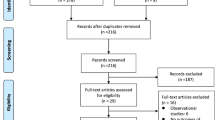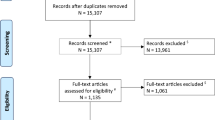Abstract
Although it is still debated whether chronic cerebro-spinal venous insufficiency (CCSVI) plays a role in multiple sclerosis (MS) development, many patients underwent endovascular treatment (ET) of CCSVI. The objective of the study is to evaluate the outcome and safety of ET in Italian MS patients. Italian MS centers that are part of the Italian MS Study Group were all invited to participate to this retrospective study. A structured questionnaire was used to collect detailed clinical data before and after the ET. Data from 462 patients were collected in 33 centers. ET consisted of balloon dilatation (93 % of cases) or stent application. The mean follow-up duration after ET was 31 weeks. Mean EDSS remained unchanged after ET (5.2 vs. 4.9), 144 relapses occurred in 98/462 cases (21 %), mainly in RR-MS patients. Fifteen severe adverse events were recorded in 3.2 % of cases. Given the risk of severe adverse events and the lack of objective beneficial effects, our findings confirm that at present ET should not be recommended to patients with MS.

Similar content being viewed by others
References
Zamboni P (2006) The big idea: iron-dependent inflammation in venous disease and proposed parallels in multiple sclerosis. J R Soc Med 99:589–593
Zamboni P, Menegatti E, Bartolomei I et al (2007) Intracranial venous haemodynamics in multiple sclerosis. Curr Neurovasc Res 4:252–258
Zamboni P, Galeotti R, Menegatti E et al (2009) Chronic cerebrospinal venous insufficiency in patients with multiple sclerosis. J Neurol Neurosurg Psychiatry 80:392–399
Zamboni P, Menegatti E, Galeotti R et al (2009) The value of cerebral Doppler venous haemodynamics in the assessment of multiple sclerosis. J Neurol Sci 282:21–27
Thapar A, Lane T, Nicholas R, Friede T et al (2011) Systematic review of sonographic chronic cerebrospinal venous insufficiency findings in multiple sclerosis. Phlebology 26(8):319–325
Baracchini C, Atzori M, Gallo P (2012) CCSVI and MS: no meaning, no fact. Neurol Sci May 9 (Epub ahead of print)
Bagert BA, Marder E, Stüve O (2011) Chronic cerebrospinal venous insufficiency and multiple sclerosis. Arch Neurol 68:1379–1384
Kipshidze N, Rukhadze I, Archvadze A et al (2011) Endovascular treatment of patients with chronic cerebrospinal venous insufficiency and multiple sclerosis. Georgian Med News 199:29–34
Mandato KD, Hegener PF, Siskin GP et al (2012) Safety of endovascular treatment of chronic cerebrospinal venous insufficiency: a report of 240 patients with multiple sclerosis. J Vasc Interv Radiol 23:55–59
Kostecki J, Zaniewski M, Ziaja K et al (2011) An endovascular treatment of chronic cerebro-spinal venous insufficiency in multiple sclerosis patients—6 month follow-up results. Neuro Endocrinol Lett 32:557–562
Zamboni P, Galeotti R, Weinstock-Guttman B et al (2012) Venous angioplasty in patients with multiple sclerosis: results of a pilot study. Eur J Vasc Endovasc Surg 43:116–122
Petrov I, Grozdinski L, Kaninski G (2011) Safety profile of endovascular treatment for chronic cerebrospinal venous insufficiency in patients with multiple sclerosis. J Endovasc Ther 18:314–323
Ludyga T, Kazibudzki M, Simka M et al (2010) Endovascular treatment for chronic cerebrospinal venous insufficiency: is the procedure safe? Phlebology 25:286–295
Zamboni P, Galeotti R, Menegatti E et al (2009) A prospective open-label study of endovascular treatment of chronic cerebrospinal venous insufficiency. J Vasc Surg 50:1348–1358
Salvi F, Bartolomei I, Buccellato E et al (2012) Venous angioplasty in multiple sclerosis: neurological outcome at two years in a cohort of relapsing-remitting patients. Funct Neurol 27:55–59
http://www.fda.gov/MedicalDevices/Safety/AlertsandNotices/ucm303318.htm#.T6vm8Mc8cjc.email
Kurtzke JF (1983) Rating neurological impairment in multiple sclerosis: an expanded disability scale (EDSS). Neurology 33:1444–1452
Ghezzi A. Annovazzi P, Amato MP et al. (2013) Adverse events after endovascular treatment of chronic cerebrospinal venous insufficiency (CCSVI) in patients with multiple sclerosis Mult Scler J (in press)
Author information
Authors and Affiliations
Consortia
Corresponding author
Electronic supplementary material
Below is the link to the electronic supplementary material.
Rights and permissions
About this article
Cite this article
Ghezzi, A., Annovazzi, P., Cocco, E. et al. Endovascular treatment of CCSVI in patients with multiple sclerosis: clinical outcome of 462 cases. Neurol Sci 34, 1633–1637 (2013). https://doi.org/10.1007/s10072-013-1300-5
Received:
Accepted:
Published:
Issue Date:
DOI: https://doi.org/10.1007/s10072-013-1300-5




